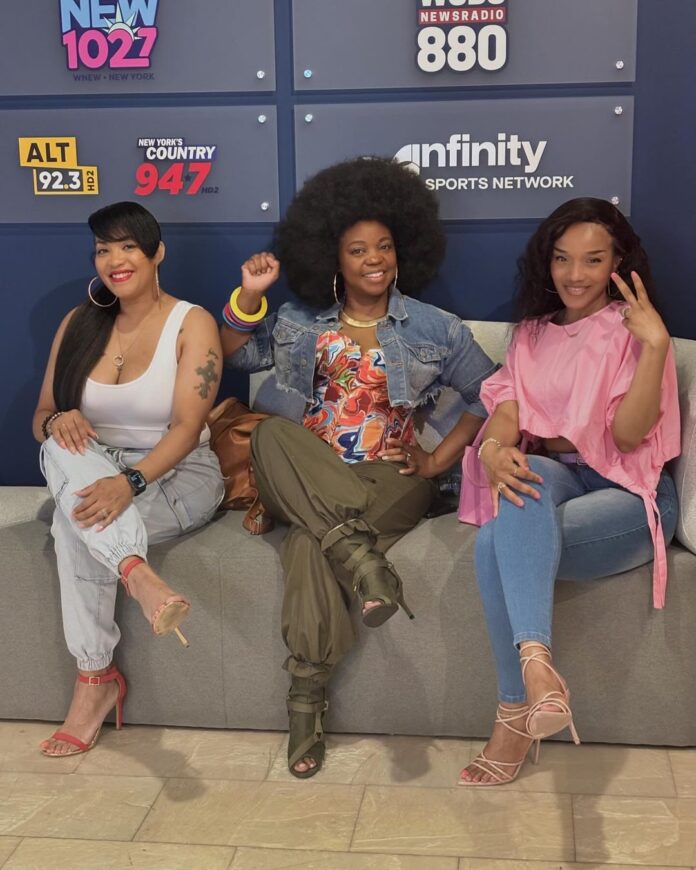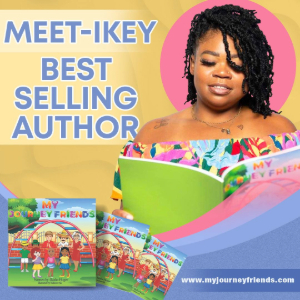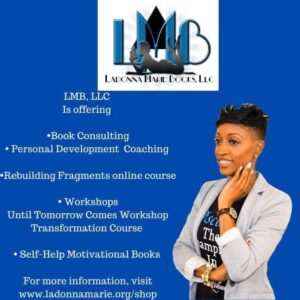It’s almost hard to believe that it’s been over 25 years since the debut of Allure’s self-titled studio album was released by Mariah Carey’s Crave Records. From the moment they burst onto the scene, their sound made it clear that this was not just another girl group. Allure was a quartet of naturally talented, trained vocalists whose harmonies were impeccable, grabbing the attention of Mariah Carey herself. Their blend of true talent and authenticity has stood the test of time, making them one of the few 90s R&B groups to maintain their relevance and bond through the years.
Formed while still in high school, three of the original four members—Alia Davis, Akissa Mendez, and Lalisha McClean—were students at the prestigious Fiorello H. LaGuardia High School of Music & Art and Performing Arts in New York City. Their early success was marked by notable tracks like “Head Over Heels” featuring Nas and “All Cried Out” featuring 112, which peaked at number 4 on the Billboard Hot 100 Singles chart. Other hits, such as “Enjoy Yourself” from their second studio album and “No Question” featuring LL Cool J, also received substantial airplay, cementing their place in the R&B world.
Despite their success, Allure faced the challenges that came with record label transitions and the pressures of the music industry. However, what has remained constant is the foundation of sisterhood that has kept them united. Through the ups and downs, the members of Allure have always put God first, stayed true to themselves, and never allowed anyone to destroy their bond. This unwavering commitment to their values has enabled them to maintain creative and business control over their careers, making decisions that align with their beliefs as a brand.
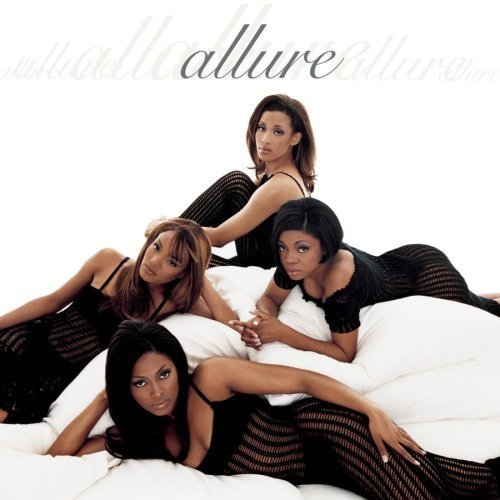
Today, Allure continues to do what they love—touring, performing, and even working on launching a podcast called “GAG” (Grown Ass Girls). Their journey from high school students to R&B icons is a testament to their resilience and dedication. They also have made it a mission to give back, mentoring aspiring artists and sharing the wisdom they’ve gained over the years.
In an exclusive interview, the members of Allure reflected on their journey and the challenges they faced as young women in the music industry.
Q: Your group was formed while you were all still in high school. How did your identity as a young woman influence the group’s early music and image?
Alia: It took a long time for many people to realize that we were just out of high school. They didn’t know if we were teenagers or grown women. We didn’t have the image we felt we should have portrayed at the time. We came off like we were a lot older, but that was a time when we didn’t have control of what our image was going to be.
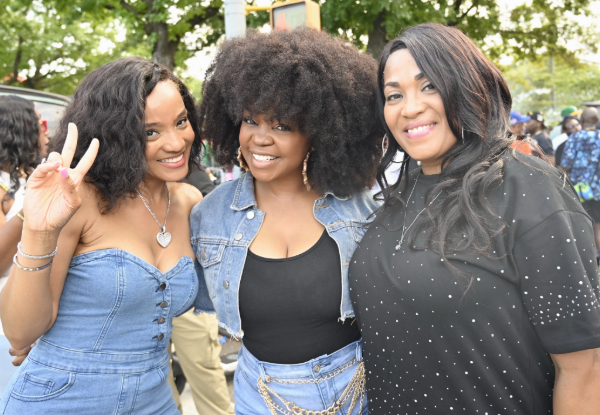
Lalisha: We were being pulled between the label Trackmasters, Mariah, and management. They all saw us going in different directions, so we were pulled between all three.
Q: I noticed that you were dressed sophisticatedly but very maturely. If you could go back in time, what look would you have preferred?
Alia: I think we would have just been our authentic selves. We’re from New York. I mean, we are all from the hood. I’m not implying that we wanted to look “hood boogery.” We had a street flare about us. We were girls from around the way who were comfortable showing that—cute, cool, fun to be around. That would have been the image we wanted to portray. What we are showing now at almost 50 is what we would have wanted it to be back then.
Q: What challenges did you face as a girl group trying to break into the music industry in the 90s?
Lalisha- I would say just us being able to stand the test of time. We’ve had plenty of obstacles with labels, production, and people pretty much not giving us our recognition or even acknowledging the staple or impact that we made as one of the 90s girl groups. We are often forgotten. We are steadfast and continue to do what we do naturally by the grace of God. There were times when we wanted to give up, but our passion for music…we just couldn’t. One of us would always pull the other out of a dark place. Just being able to endure the transition of social media—just everything. We’re still here. We surprise ourselves sometimes.
Akissa- One of the things I’m proud of is just us getting through that whole shadow of being one of the many girl groups out at the time. There were magazines like Hype, where people would go and buy and read stuff, which we love and miss. But trying to get through that cloud of everyone trying to make girl groups be against one another was a challenge. Our thing was, we know we’re girls’ girls, and we wanted to be able to go out and sing and touch people. It’s not a competition. We did pretty well escaping the stigma of messiness or tension between girl groups. This was before social media—everything was through the radio, word of mouth, or maybe you caught a music video.
Q: Knowing that the 90s held a certain climate for women in general, I prefer not to label it ‘rape culture,’ but have you ever found yourselves in situations that you feel may not have happened if you weren’t women?
Akissa: Wow, it’s not weird that you said it, but it’s ironic because everything is coming to fruition.
Lalisha: Everything done in the dark comes to light. It’s crazy that it has taken almost 30 years for some things going on in the industry to come out. Of course, we experienced inappropriate things being said, but we thank God for being covered. Our families don’t play that.
Alia: We were those girls that people knew would fight and had mouths. We were quiet types of people, but they knew if lines were crossed, it was going to be a problem.
Lalisha: We also believed our talent would take us where we needed to be. Whether it’s a long detour through obstacles, we came from an era where it was about your talent.
Q: You have collaborated with established artists with large fan bases. Can you share a gem learned from one of these notable artists that you still carry with you today?
Alia: LL [Cool J] talked to us, helped us put our show together, and advised us on how to be performers in this business.
Akissa: Conversations with LL Cool J and Heavy D always stuck out with us because we were three individual girls with three different personalities. Those conversations shaped our energy during performances. I have stage fright, and I remember Heavy D saying, “Just go out there and give all the energy that you possibly can.” So every time we hit the stage, we always give 110%, no matter what the crowd does. They may just be sitting there staring—always give 110%. That’s what always stays with me. Even if I might be having a bad day, the minute I get with the girls, and we’re about to be on stage, that’s my adrenaline.
Q: As you have grown into women in the industry, becoming wives and mothers, how have you kept the group together?
Alia: We were not a put-together group. We know each other. We are very much in each other’s lives. We have an unmatched dynamic. We are very much involved in our children’s lives and grandchildren’s lives. It’s not just about the music. That makes it much easier. And I believe that’s a huge part of why we could withstand everything we’ve been through—the foundation was strong way before we even got into the music industry.
Lalisha: At the end of the day, the day will end, but we hold each other accountable. Not always at the moment, but there’s something about our chemistry where we just balance each other out, and there’s genuine love.
Q: Final question—what progress has been made in the representation of women in R&B music, and where do you see room for improvement?
Alia: As far as growth, even if I might not agree with all the music or how things are portrayed, women are taking ownership of themselves. They are coming into their own. We’re getting more of a voice in the industry. The way it can improve is morally—no one is perfect, and we are not by any means trying to say that we’re the nuns of the industry at all. But I feel like we can have more of a moral compass.
[Lalisha and Akissa both agree.]
Alia: In this industry, as women, what we portray or bring out affects those who come after us.
Reflecting on Allure’s legacy, it’s clear that their music has not only stood the test of time but continues to resonate across generations. The 90s may have been their launchpad, but their bond, authenticity, and talent have kept them going. Allure deserves their flowers—and they’re here to collect them.
 Monique (Mo) Glover is an award-winning NYC-based fashion designer and instructor. After designing for large retail brands, she launched her label, ZYEM NYC, named after her son. ZYEM has been highlighted by WGSN as a trendsetting brand to watch because of its responsible cultural collaborations. Rooted in her Black American heritage, which has spanned the Bronx, Brooklyn, and Queens since the 1940s, Monique’s work is inspired by her experiences coming of age in NYC, global travels, and the inter-generational style she observes in her son, Zyem, and his friends.
Monique (Mo) Glover is an award-winning NYC-based fashion designer and instructor. After designing for large retail brands, she launched her label, ZYEM NYC, named after her son. ZYEM has been highlighted by WGSN as a trendsetting brand to watch because of its responsible cultural collaborations. Rooted in her Black American heritage, which has spanned the Bronx, Brooklyn, and Queens since the 1940s, Monique’s work is inspired by her experiences coming of age in NYC, global travels, and the inter-generational style she observes in her son, Zyem, and his friends.



